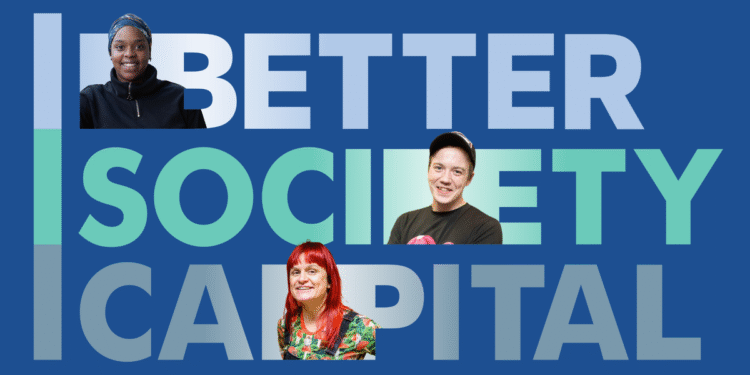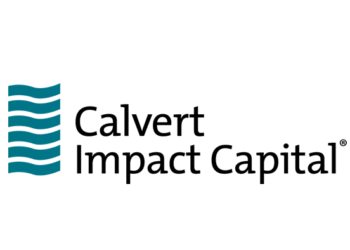What if the money in your bank account could do more than just earn interest? What if it could actively help solve major social issues like homelessness and poverty? This is the powerful question at the heart of a revolutionary financial movement.
Better Society Capital (BSC) leads this charge as the UK’s pioneering social impact investor. Originally launched as Big Society Capital in 2012, the organization changed its name in 2024 to better reflect its core purpose. Its fundamental mission is to grow the amount of money dedicated to tackling social issues and inequalities.
BSC started with an initial £600 million fund. This unique funding combines money from dormant bank accounts and contributions from four major UK banks. This collaborative approach fuels a powerful engine for change.
Since its start, BSC has invested nearly £1 billion. This capital has attracted almost £3 billion more from private co-investors. Together, this creates a massive £4 billion pool of funds available to organizations making a real difference.
Over 3,750 impact-led groups have received support. They work on critical areas like housing, employment, education, and health. This strategy demonstrates the tangible power of directing capital toward positive impact.
Key Takeaways
- Better Society Capital is the UK’s first major social impact investor.
- The organization changed its name from Big Society Capital in 2024.
- Its mission is to direct significant investment toward solving social problems.
- BSC started with £600 million from a mix of dormant accounts and major banks.
- Its investments have attracted nearly £3 billion in additional private capital.
- Over 3,750 organizations have received funding to address critical community needs.
- This approach has helped the UK’s social investment market grow twelvefold since 2012.
Understanding Social Impact Investment
Traditional investing meets social change in an innovative approach called impact investment. This financial strategy aims to generate both monetary returns and positive social outcomes.

The concept gained formal recognition in the UK through the Social Investment Task Force established in 2000. This initiative examined ways to promote enterprise while supporting community development.
Defining Social Impact and Funding Models
Social impact investment involves lending or investing money to achieve dual objectives. Unlike traditional philanthropy, this approach expects capital repayment while creating measurable benefits.
Various funding models support this sector, including loans, equity investments, and bonds. These tools help organizations address complex social issues that conventional finance often overlooks.
The Role of Investment in Addressing Social Issues
The Dormant Bank and Building Society Accounts Act of 2008 provided crucial legislative support. This law enabled unclaimed funds to support social investment, creating new capital sources.
Impact investment addresses market failures where traditional institutions hesitate to invest. This creates access to money for organizations working on pressing social issues like homelessness and education inequality.
Investors track both financial performance and social outcomes to ensure their money creates real impact. This accountability distinguishes social impact investment from conventional approaches.
Better Society Capital: Approach and Investment Strategies
How does an organization turn dormant bank accounts into a powerful engine for social progress? Better Society Capital operates as a social investment wholesaler, creating maximum impact through strategic intermediaries.
This model means BSC invests through banks and fund managers rather than directly funding frontline groups. The approach creates a multiplier effect that extends reach across the UK social sector.
Innovative Funding and Capital Recycling
The original £400 million from dormant assets has grown tenfold through capital recycling. Returns are reinvested into over 140 fund commitments worth more than £1 billion.
This creates ongoing social value instead of one-time grants. The strategy demonstrates sustainable financial growth while pursuing social mission.
Diverse Investment Categories and Returns
BSC’s investments fall into four categories targeting different needs. Specialized funds focus on specific outcomes like health or geographic areas.
General funds provide broad capital access while Social Impact Bonds enable payment-by-results contracts. Operating intermediaries strengthen investment infrastructure.
The organization achieved its first net profit of £800,000 in 2017. This marked a significant milestone in financial sustainability.
Evolution from Big Society Capital to Better Society Capital
In April 2024, the organization changed its name to better reflect its mission. The rebrand communicates a clearer commitment to creating positive change through impact investment.
Over 60% of social lending targets the UK’s most deprived areas. This ensures funds flow to communities with greatest need for economic development.
Building Partnerships for Community Impact
Collaborative approaches amplify the reach and effectiveness of capital directed toward community development. Strategic alliances create multiplier effects that benefit diverse populations across the United Kingdom.

Collaboration with Government and Private Investors
The organization has attracted nearly £3 billion in co-investment from private capital partners. This demonstrates how public funds can leverage significant private investment for social purposes.
A unique governance structure ensures mission focus while enabling broad participation. The Oversight Trust holds 80% of voting rights, maintaining independence from commercial interests.
Major banks participate with capped voting rights of 5% each. This balanced approach prevents undue influence while benefiting from financial expertise.
Supporting Social Enterprises and Front-line Organizations
Over 3,750 impact-led organizations have received support through this partnership model. These groups address critical needs like housing, employment, and health access.
The impact reaches over seven million people through investments in financial inclusion and health initiatives. Frontline charities and social enterprises deliver direct services to communities.
This approach helps organizations develop sustainable business models while measuring their social impact. It creates lasting solutions rather than temporary fixes for complex challenges.
Conclusion
Over the past decade, a quiet revolution has transformed how capital addresses social challenges. Since 2012, the UK’s social investment market has grown twelvefold from under £1 billion to over £10 billion. This remarkable expansion demonstrates the viability of the impact investment model.
Despite this progress, substantial work remains. Many social issues remain deeply entrenched across communities. The amount of money needed to create meaningful change continues to be significant.
Building strategic partnerships remains central to the organization’s approach. Collaboration between social sector groups, government bodies, and private investors creates powerful multiplier effects. As Anna Shiel noted, new government engagement presents exciting opportunities to attract fresh capital.
The success of this approach proves that financial returns and social outcomes can work together. This model offers a sustainable way to tackle complex community issues while maintaining financial discipline.
FAQ
What is social impact investment?
Social impact investment is a strategy that aims to generate positive, measurable social and environmental outcomes alongside a financial return. It directs money toward organizations and funds tackling critical issues like poverty, health disparities, and financial inclusion.
How does Better Society Capital support communities?
It provides crucial funding and support to social enterprises and charities working on the front lines. By partnering with other investors and government bodies, it helps scale solutions that improve lives and strengthen local areas.
What types of issues do these investments address?
Investments focus on a wide range of pressing social issues. Key areas include improving health outcomes, increasing financial inclusion for underserved people, creating affordable housing, and supporting community development projects.
Can investors expect a financial return?
Yes. The approach is designed to achieve a “blended return.” This means targeting both a positive social impact and a financial gain, proving that mission and money can work together effectively.
How is capital recycled within this model?
This innovative funding model allows returns from successful investments to be reinvested into new opportunities. This recycling of capital creates a sustainable cycle of funding, maximizing the amount of money available for social good over many years.
What is the difference between Big Society Capital and Better Society Capital?
The evolution from Big Society Capital to Better Society Capital represents a strategic shift to deepen the focus on measurable impact and expand partnerships. It reflects a matured approach to tackling complex social market challenges with greater efficiency.





